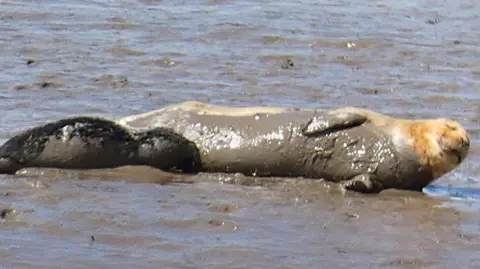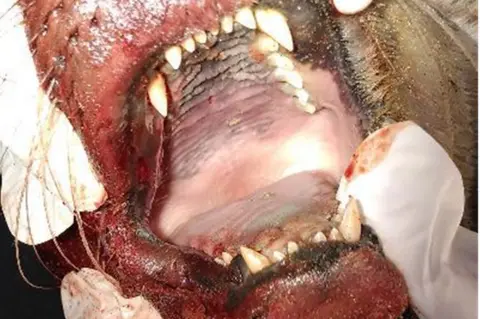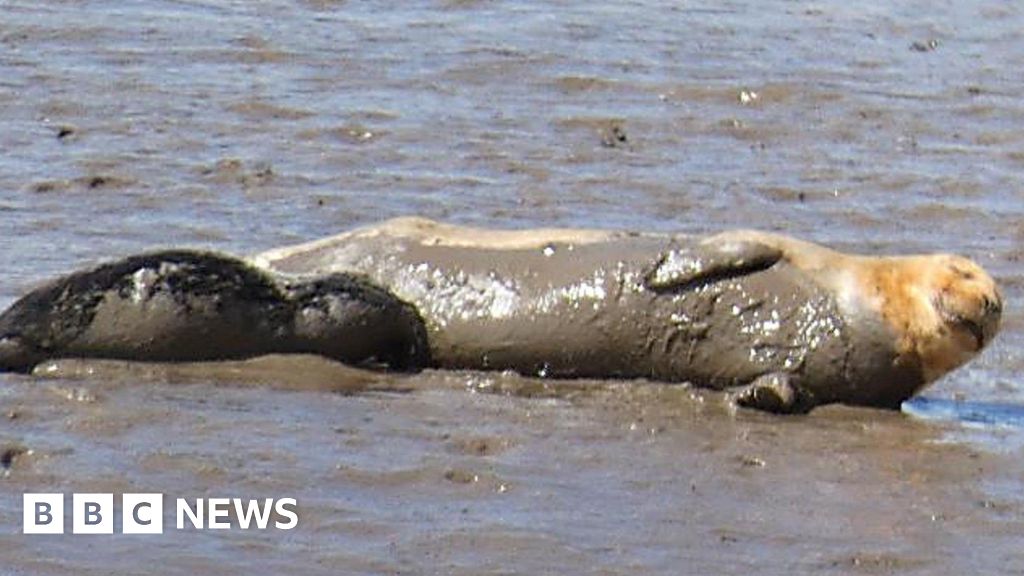Tom BurgessNorth East and Cumbria
 Tara Seal Research
Tara Seal Research
Seal pups were monitored suckling at Seal Sands in Teesside
Every new seal pup monitored in an estuary this year has died, mainly from a condition called mouth rot, a conservation research group has said.
For the last two years, the Tara Seal Research team has been monitoring common seals and their pups at Seal Sands and Greatham Creek in the Tees estuary. As part of its Tees Estuary Seal Study the team counted 21 pups at Seal Sands but found they had all died weeks later in the Tees Bay area.
Dr Sue Wilson, from the conservation team, said the pups dying before they reached two months old was “devastating”.
A government spokesperson said staff at Defra “continue to engage with scientists and wildlife experts” about the seals’ welfare.
Warning – this article contains a graphic image of a seal suffering from mouth rot
Dr Wilson said the team watched the pups being cared for by their mothers in July.
She said: “In my many years of observing many common seal pupping colonies in Scotland, Ireland and Canada I have never known a disastrous situation like this.
“We have to know what is causing this and we have to get something done about it.
“The common seal breeding population should be the jewel in the crown of the Tees estuary.
“Instead it is a heartbreaking disaster.”
‘Beyond saving’
Hartlepool vet Zoe Dykes said there was a risk of losing the common seal population in the region unless the cause of their mouth rot was identified.
Ms Dykes said: “As a vet it is very frustrating not to be able to treat seals when they have mild or early symptoms, but by the time they are poorly and brought to us they are beyond saving.
“Some are already dead when they are brought in and our job is to take samples for investigation, and the other ones I’ve seen simply could not be treated and had to be put to sleep for their own welfare.”
Senior veterinary nurse Sue Gibson said 10 seals brought in by the British Divers Marine Life Rescue were either dead or so poorly they had to be put to sleep.
 Tara Seal Research
Tara Seal Research
Conservationists have called for more research into the cause of the seals’ mouth rot
A spokesperson for Defra said: “Seal deaths can sadly occur for many reasons, including storm surges, food shortages, trauma, predation or disease outbreaks such as ‘mouth rot’.
“We are aware of this report and continue to engage with scientists and wildlife experts.”
The conservation group said it expected the seal mortality levels to continue in 2026 and it would carry on investigating the cause.


